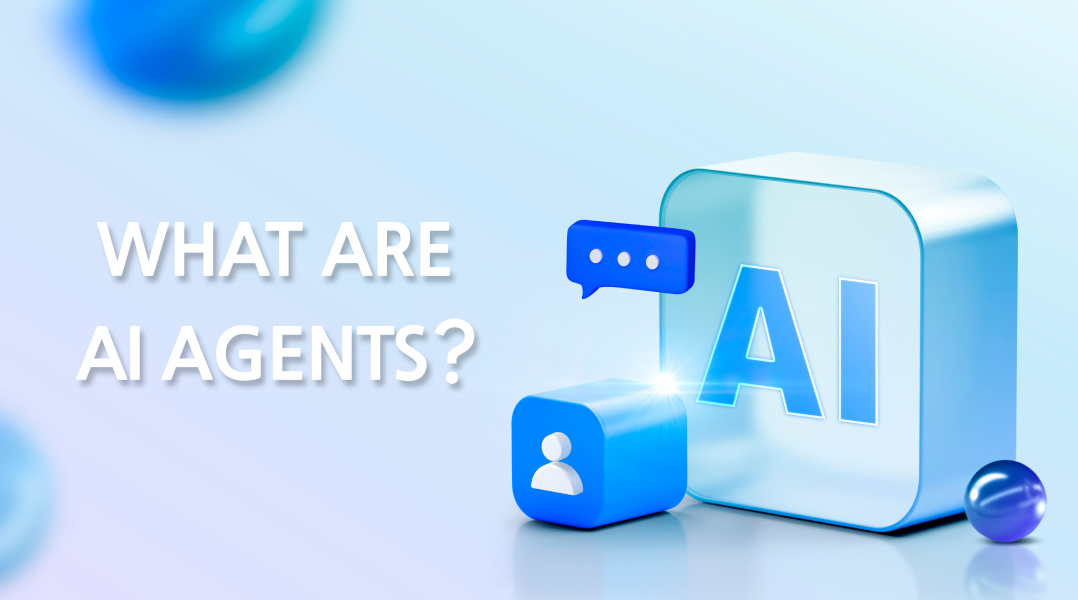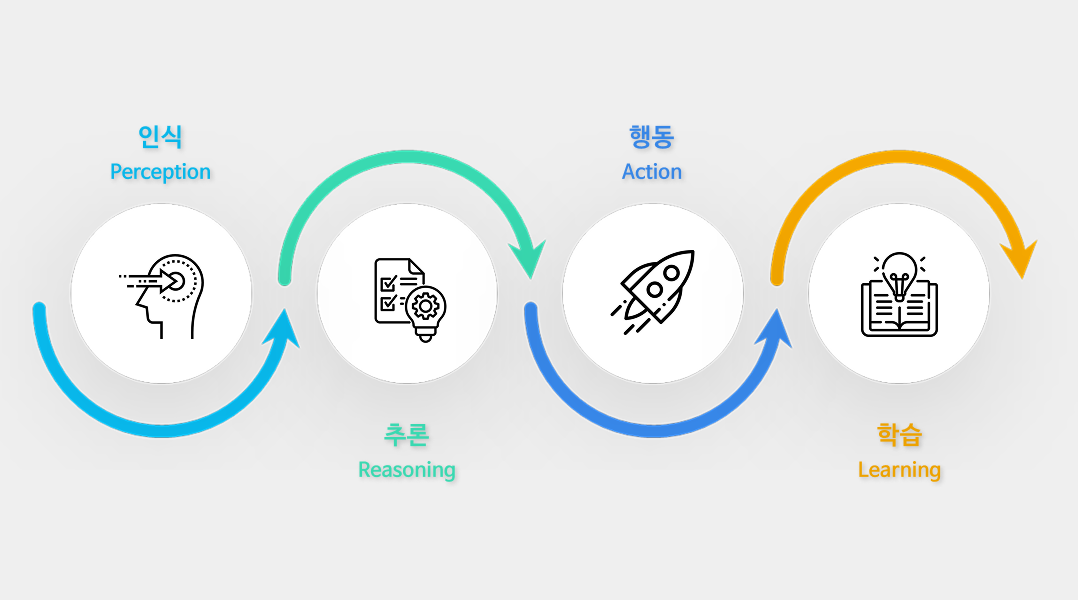
AI (Artificial Intelligence) is advancing at an astonishing pace, establishing itself as a core technology that makes our daily lives more convenient and efficient. Recently, the so-called 'AI Agent' or 'Agentic AI'—where human intervention is minimized and AI autonomously judges and takes action to solve problems—has become a hot topic.
Research firm Gartner has identified AI Agents as one of the 'Top 10 Strategic Technology Trends for 2025', predicting they will become essential technology. Jensen Huang, CEO of NVIDIA, also foreshadowed the widespread adoption of AI Agents at CES 2025.
This article explores the key features of AI Agents, which are expected to transform future work paradigms, their application prospects across major industries, and finally, the challenges they present to businesses.
[View the entire series👀]
① Key features and workflow of AI agents (→ We're right here!)
② Application prospects by major industry and challenges facing enterprises
💫 What is an AI Agent?
Unfortunately, there is no agreed-upon academic definition for AI Agents. However, synthesizing various definitions from market research firms and global companies, it refers to ‘Autonomous AI’ that collects and interprets information through diverse channels on behalf of the user to achieve their desired goals. It independently plans, reasons, makes decisions, and proactively performs necessary actions.
Previously, AI was limited to outputting simple responses to user prompts. AI Agents, however, can make independent decisions and repeatedly execute tasks until the goal is achieved.

(Provided by Clipart Korea, reprocessed by PLATEER)
💫 AI Agent Operation Process
Let's discuss the basic workflow of an AI Agent.
First, it operates by following the steps of ① Perception → ② Reasoning → ③ Action based on the user's desired goal or instruction.
|
✅Stage 1: Perception
It acquires external information through various channels such as sensors and API data.
✅Step 2: Reasoning
Analyzes the collected information about the surrounding environment to make optimal decisions.
✅Step 3: Action
Execute physical control or processing within digital environments according to the final strategy determined.
|
Beyond the three steps mentioned above, there is another crucial process: the 'Learning' stage. To enhance the value of AI Agents, it is vital to continuously train them using Multi Modality data like text and voice. This enables them to recognize their surroundings and develop the flexibility to handle any problem effectively.

AI Agent Workflow (Provided by PLATEER)
The subsequent Part 2 content covers 'Prospects for AI Agent Utilization by Major Industry and Challenges Facing Enterprises'.
[Go to Part 2 Content] ← Click Here
※ Source
1. The Age of Agents: Giving Wings to AI, Samil PwC Management Research Institute, July 2025 → Clike here
2. AI Agent Innovation: Current and Future Outlooks Transforming Industries, Samjung KPMG Economic Research Institute, September 2025 → Clike here
3. State of the Agentic AI Market Report, ISG, September 2024 → Clike here
Discover diverse content curated by PLATEER!
* Everything about the 2025 rising star 'AI agent' → Click here
* The Era of Generative AI: Green IT Is Now More Urgent → Click here
* Dreaming of sustainable IT…Unpacking green IT strategies leading carbon neutrality in the ESG era → Click here
Did you enjoy today’s content?
Subscribe to PLATEER’s newsletter!
Get curated insights and updates delivered straight to your inbox.
5.jpg)
Subscribe to our newsletter


